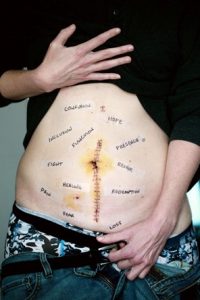Confidence Building for Kids
By: Margie Frisco, MA, LPC-Associate Supervised by Melissa Barton MA, LPC-S Having self-confidence as a kid can be tricky! Remember back when you were a kid. Did you experience a situation where another classmate was mean to you? Or remember the old saying of sticks and stones may break my bones, but words can never […]



 someone says something mean about how you look or act, say, “that is ok. I know I am worthy of love.” Or if someone blames you for something you had no control over, say, “I tried my best.” Showing your child how to react when others are not nice can show them how to respond if they experience the same thing.
someone says something mean about how you look or act, say, “that is ok. I know I am worthy of love.” Or if someone blames you for something you had no control over, say, “I tried my best.” Showing your child how to react when others are not nice can show them how to respond if they experience the same thing.

 By: Julie Sekachev, M.Ed, LPC Associate
By: Julie Sekachev, M.Ed, LPC Associate






 By: Julie Sekachev, M.Ed, LPC Associate
By: Julie Sekachev, M.Ed, LPC Associate


 By: Carey Robey, MS, LPC, NCC
By: Carey Robey, MS, LPC, NCC






 What we don’t see are the hidden truths. The photoshop edits, the failures, the crippling self doubt. But what if we did? People may experience less depressive symptoms and suicidal thoughts. A 2015 study found that 67% of young people questioned felt worse about their lives because of social media.
What we don’t see are the hidden truths. The photoshop edits, the failures, the crippling self doubt. But what if we did? People may experience less depressive symptoms and suicidal thoughts. A 2015 study found that 67% of young people questioned felt worse about their lives because of social media.  Eating Disorders and Body Image
Eating Disorders and Body Image Technology Addiction
Technology Addiction

 Judgement and criticism
Judgement and criticism Go To Counseling To Help With Self-Esteem!
Go To Counseling To Help With Self-Esteem!

 The Hope That Can be Instilled Seeing Other Teens Succeed
The Hope That Can be Instilled Seeing Other Teens Succeed
 What Is Self-Harm?
What Is Self-Harm?
 Therapy can be very effective for people who want to stop self-harm behaviors. Furthermore, therapy can help your teen address and process the feelings that led to these behaviors. Also, they can learn new coping skills to help deal with strong emotions. A therapist can also work with your teen to come up with a plan of safety. These resources can be used if the urge to self-harm comes up.
Therapy can be very effective for people who want to stop self-harm behaviors. Furthermore, therapy can help your teen address and process the feelings that led to these behaviors. Also, they can learn new coping skills to help deal with strong emotions. A therapist can also work with your teen to come up with a plan of safety. These resources can be used if the urge to self-harm comes up.